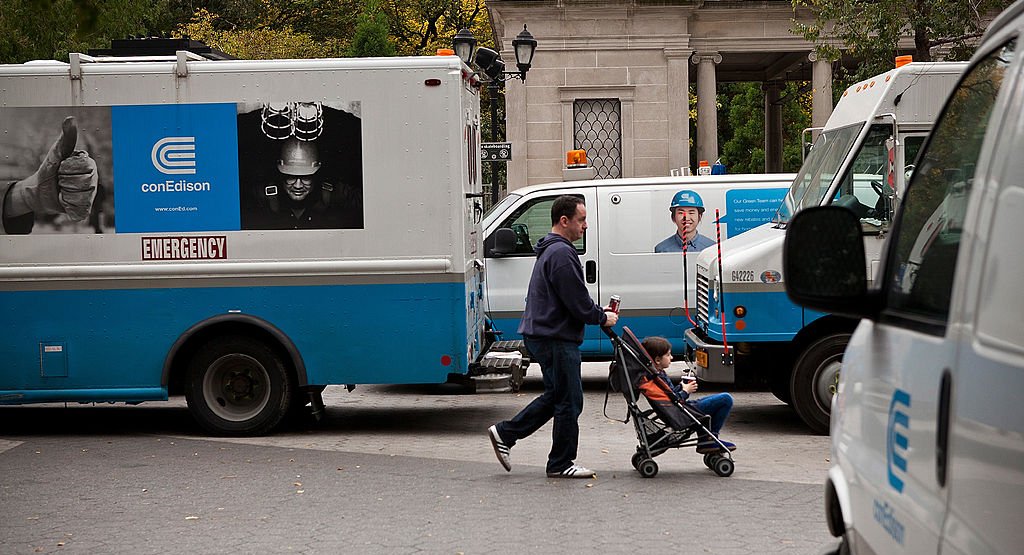Nearly two-thirds of low-income New Yorkers are falling behind on their utility bills, according to a new analysis released on Thursday by an anti-poverty group.
A report from the Robin Hood Foundation examining energy insecurity in the five boroughs found that each year, roughly 700,000 New Yorkers lived in households whose utilities were cut at least once. Renters, Black and Latino New Yorkers, and Bronx residents face the hardest economic burden to keep their power running, according to the organization.
The report comes as New Yorkers face another heat wave this week, with temperatures hovering in the mid- to high-90s and near-constant air quality advisories, which have prompted Con Edison to advise customers to help prevent power outages by limiting their energy usage. Utility bills are also expected to rise in coming months due to across-the-board rate hikes for water, gas and electricity.
“Utilities are bare essentials that every New Yorker must have to cool their homes, refrigerate and cook their food, see in the dark, and remain connected to the internet and the outside world,” said Matt Klein, chief program and impact officer at Robin Hood. “These are not luxuries but indispensable and necessary services.”
The report found that 62% of New Yorkers who live below the poverty line fall behind on their utility bills and 43% had their services cut. Black New Yorkers are more than seven times likelier than their white counterparts to have their utilities shut off, at 37% versus 5%, according to the report.
The average utility bill spikes during the hotter summer months, and typically peaks in August, which is when some people experience more difficulty affording their utilities, according to the report.
There are programs that help New Yorkers prevent utility shut-offs, such as the Home Energy Assistance Program, which serves to keep power and heat on during winter months.
The city’s cooling program focuses on assisting households with the costs of buying and installing air conditioners, not the costs of keeping them running. As New York City faces rising living costs and the expiration of COVID-19 relief programs, planned utility rate hikes could increase utility cutoffs as well as the rationing of energy use.
“A lot of people will have an air conditioning unit, but they will choose not to use it because of the cost,” said Diane Hernandez, who co-directs the Center on Global Energy Policy’s energy opportunity lab. “One way to cope is to try and reduce your energy use as much as possible in order to contain the cost, but what that ultimately presents are health risks on the other side.”
Energy insecurity doesn’t just affect low-income families and individuals. The report shows that a fifth of all households in the city fall behind on utility payments. That includes households whose income is 300% above the poverty line, or about $131,000 for a family of four.
Klein says that expanding assistance to low-income New Yorkers and reducing late fees can help alleviate some of the financial burden.
“We must ensure that energy-specific supports, like subsidies and disconnection protections, reach all the New Yorkers who need them while making progress on key issues like housing, child care, tax policies and wages to make NYC more broadly affordable,” Klein said.
A majority of New Yorkers who have had their utilities shut off or have fallen behind on utility payments had also experienced another form of hardship: Most of the discourse on poverty focuses on housing and food insecurity but these problems are often coupled with energy insecurity which is equally as important, according to Robin Hood officials.
“Energy usage and the use of utilities is really a basic need and goes right along with the importance of food security and housing security and having a safe and high-quality child care option,” Klein said. “We need to treat energy and security with the same level of attention and seriousness that we do other forms of challenges that New Yorkers face.”
